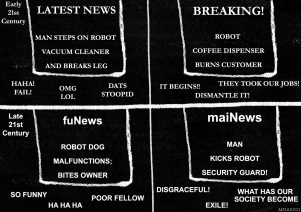One important issue in academic education at the moment is the lack of personalisation of our teaching methods. All students who are members of the same cohort are given the same information in the exact, same, way. This may seem as treating everyone equally, but it is actually not fair to consider that each, unique, individual, should learn in the single, very specific, manner that we believe is best. Even though having a singular approach to teaching is easier for academics who also have an ever-increasing research workload to consider, the benefit of the students should always come first — and technology can help us achieve this. With the aid of Artificial Intelligence, we can personalise our teaching to the learning style and pace of each individual, while also receiving instant feedback and metrics on the process of learning, which can allow us to identify any necessary changes and additions to each specific learning object that we offer. All our students can thus be equal without having to be exactly the same, and we can also reach a wider audience than before, by offering a more effective digital curriculum, adjusted to their specific wants and needs.
Read more![[00]](https://i0.wp.com/kgk.gr/wp-content/uploads/2018/07/00.png?resize=780%2C500&ssl=1)

